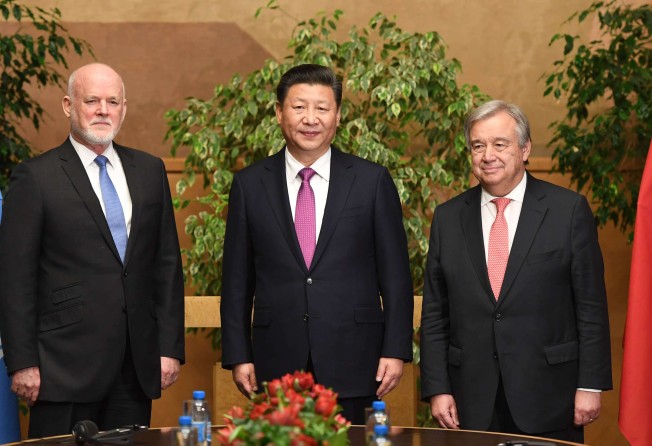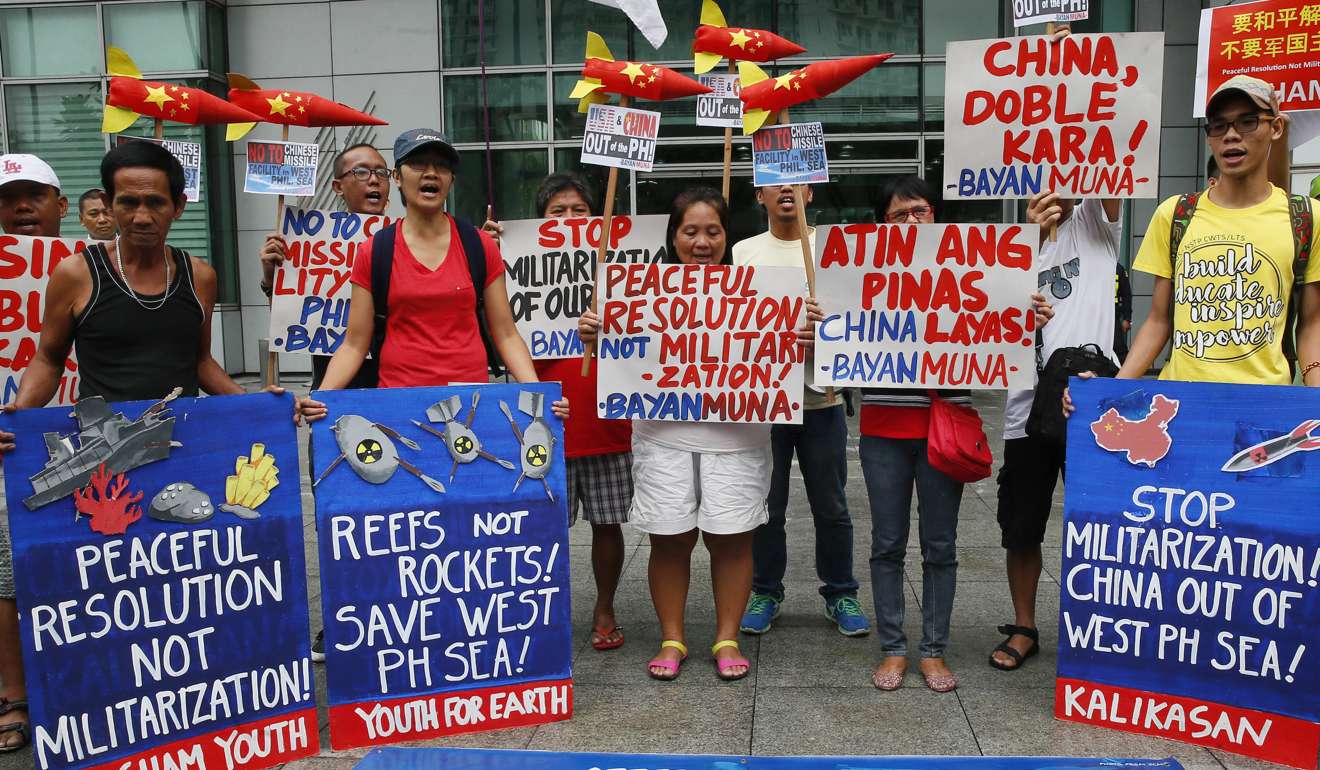China can shine on the UN stage, as Trump puts America first
Javier Delgado Rivera says while a newly parochial US offers Beijing the opportunity to assume the global mantle, it remains to be seen whether it can jettison its ‘China first’ stance and allay human rights concerns

Donald Trump’s “America First” maxim leaves a vacuum on the global stage that China appears willing to fill, and the UN can serve China well in seizing that global leadership role.
Just three days before Trump’s inauguration, President Xi Jinping (習近平) sent an unequivocal message to a world distressed by the incoming US president’s isolationist hyperbole. “We should adhere to multilateralism to uphold the authority and efficacy of multilateral institutions,” Xi told the World Economic Forum.
Watch: Xi Jinping warns against retreating behind protectionist walls
The following day, at the UN in Geneva, Xi urged the world to unite on issues ranging from the environment to terrorism, nuclear disarmament and development cooperation – signalling the UN as the natural venue to channel China’s global ambitions. Secretary General António Guterres also emphasised China’s crucial role in helping the UN deliver the Paris Agreement on climate change (now threatened by Trump) and halving global extreme poverty, a key goal largely achieved due to China’s efforts at home.
Beijing’s enthusiasm for multilateralism comes as a relief to the UN, faced with a bullish US in the diplomatic arena, and potential draconian cuts to US contributions to UN funds. China’s diplomatic objectives have usually been more focused on narrow geopolitical interests, as seen in its rejection of last summer’s Hague tribunal ruling against some of its territorial claims in the South China Sea. Yet, it has recently become a bedrock of the UN’s functioning. China is now the third-largest contributor to the UN’s regular budget and the second-largest contributor to the peacekeeping budget, according to Washington’s Centre for Strategic and International Studies.

But China’s rise in the UN is not without concerns. Its expansion of leverage will affect US and Russian clout in the global system in general and in the UN Security Council in particular, creating a new source of friction among these three veto-wielding powers. Also, the council could be further crippled by looming US-China rifts over trade – and possibly Taiwan. China could be more assertive in trying to weaken council decisions affecting African states, where it has close economic ties.
Another area of unease is Beijing’s relative disregard for human rights, criticised by the UN itself in relation to its crackdown on legal rights activists in recent years.
The UN represents a relatively innocuous and cost-effective agent for China to step up its global game in the face of a parochial US. Yet, it remains to be seen whether Beijing is genuinely prepared to break with its traditional “China first” doctrine and assume a larger and more responsible role in the UN.
Javier Delgado Rivera is a New York-based freelance journalist covering the United Nations